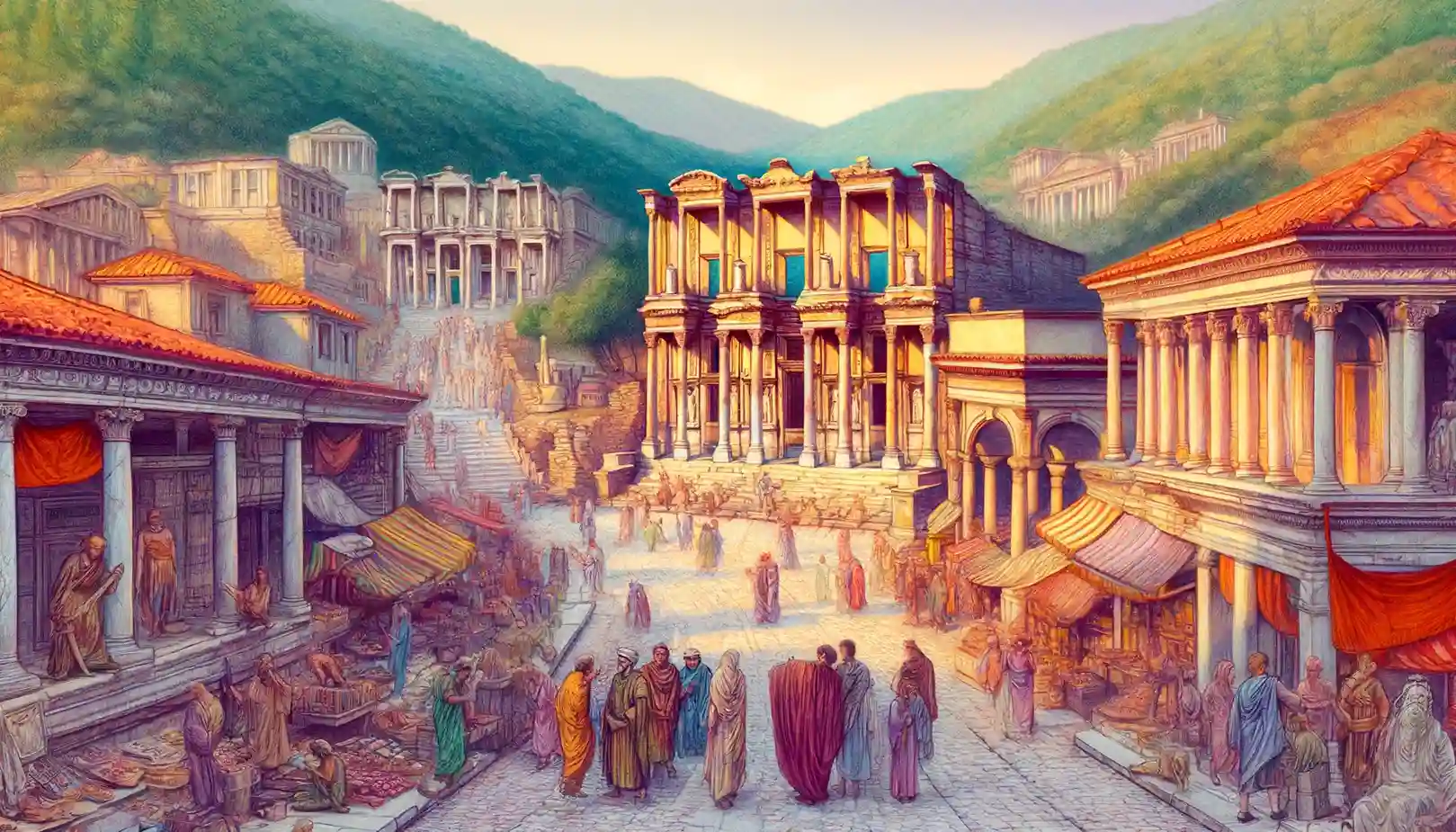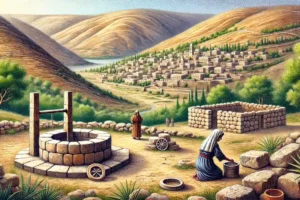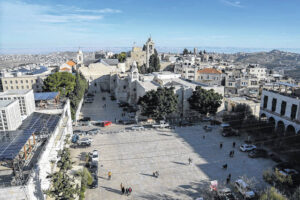
Ephesus: Hub of Ancient Commerce and Early Christianity
Ephesus was an ancient city located in what is now modern-day Turkey, known for its significant role in the early Christian church and mentioned numerous times in the New Testament. Here are some quick facts about Ephesus:
- Geographical Importance: Ephesus was strategically situated on the Aegean coast, making it a major trade and communication hub in the Roman Empire.
- Biblical Significance: The city is well-known in the Christian context as a center where the Apostle Paul preached and lived for several years.
- The Ephesian Church: Described in the New Testament, particularly in the Acts of the Apostles and Paul’s Letter to the Ephesians, this church was one of the most influential early Christian communities.
- Paul’s Ministry: Paul spent between two and three years in Ephesus during his third missionary journey, where he performed numerous miracles and significantly spread Christian teachings.
- Artemis Temple: Ephesus was home to the Temple of Artemis, one of the Seven Wonders of the Ancient World, which played a significant role in the city’s religious and social life.
- Council of Ephesus: The city was the site of the Third Ecumenical Council in 431 AD, which affirmed the doctrine of the Virgin Mary as the Theotokos or ‘Mother of God.’
- Archaeological Site: Today, Ephesus is a major archaeological site, attracting thousands of visitors interested in its well-preserved ruins, including the Library of Celsus and the Great Theatre.
Historical and Geographical Context
Ephesus was one of the greatest cities of the Greco-Roman world, famously known for its large harbor on the Aegean Sea and its proximity to the mouth of the Cayster River, making it an important commercial and cultural center. Its strategic location ensured that it played a significant role in the propagation of ideas, including Christianity.
The Ephesian Church and Paul’s Ministry
The Christian community in Ephesus is first mentioned in the Acts of the Apostles. The Apostle Paul visited Ephesus during his second missionary journey briefly and then returned for a more extended stay during his third journey, around 54-57 AD. This period marked intense evangelistic and teaching efforts, establishing Ephesus as a key center for early Christianity. Paul’s extended stay is significant because of the deep impact he had on the city, which included daily discussions at the lecture hall of Tyrannus, leading to the spread of the word “to all the Jews and Greeks living in the province of Asia” (Acts 19:10).
Cultural and Religious Dynamics
Ephesus was also notable for its religious significance prior to and during the Christian era. The city was the site of the Temple of Artemis, a structure so magnificent that it was listed as one of the Seven Wonders of the Ancient World. The presence of this temple and the strong adherence to Artemis worship posed significant challenges to the Christian message, as seen during the riot described in Acts 19, where Demetrius, a silversmith who made silver shrines of Artemis, incited opposition against Paul and his companions.
Key Theological Contributions and Issues
The Epistle to the Ephesians, traditionally attributed to Paul and written around 60-62 AD possibly from Rome, highlights the theological depth that characterizes Paul’s teachings to the Ephesians. The letter emphasizes themes such as the unity of all things in Christ, the church as the body of Christ, and the transformational nature of the Gospel that breaks down barriers between Jews and Gentiles. This epistle also addresses practical living and ethical behavior in the Christian life, outlining a vision for a new kind of community.
Ephesus in Later Christian History
Beyond the apostolic era, Ephesus continued to play a vital role in Christian history, particularly noted for the Council of Ephesus in 431 AD, which was significant for affirming the orthodox belief in Christ’s divinity and Mary’s title as Theotokos (Mother of God). This council was pivotal in shaping Christological and Mariological understandings in the subsequent doctrinal developments of the church.
Archaeological and Modern Significance
Today, Ephesus remains one of the most extensive archaeological sites in the world, offering insights into ancient urban life and early Christianity. The site includes well-preserved landmarks such as the Library of Celsus, the amphitheater, and the remains of the Temple of Artemis, providing a tangible connection to the city’s storied past.
Conclusion
Ephesus serves as a fascinating case study of the intersection between diverse religious traditions and the emerging Christian faith. Its rich history provides valuable lessons on the cultural and theological challenges faced by early Christians and their enduring impact on Christian doctrine and practice.



